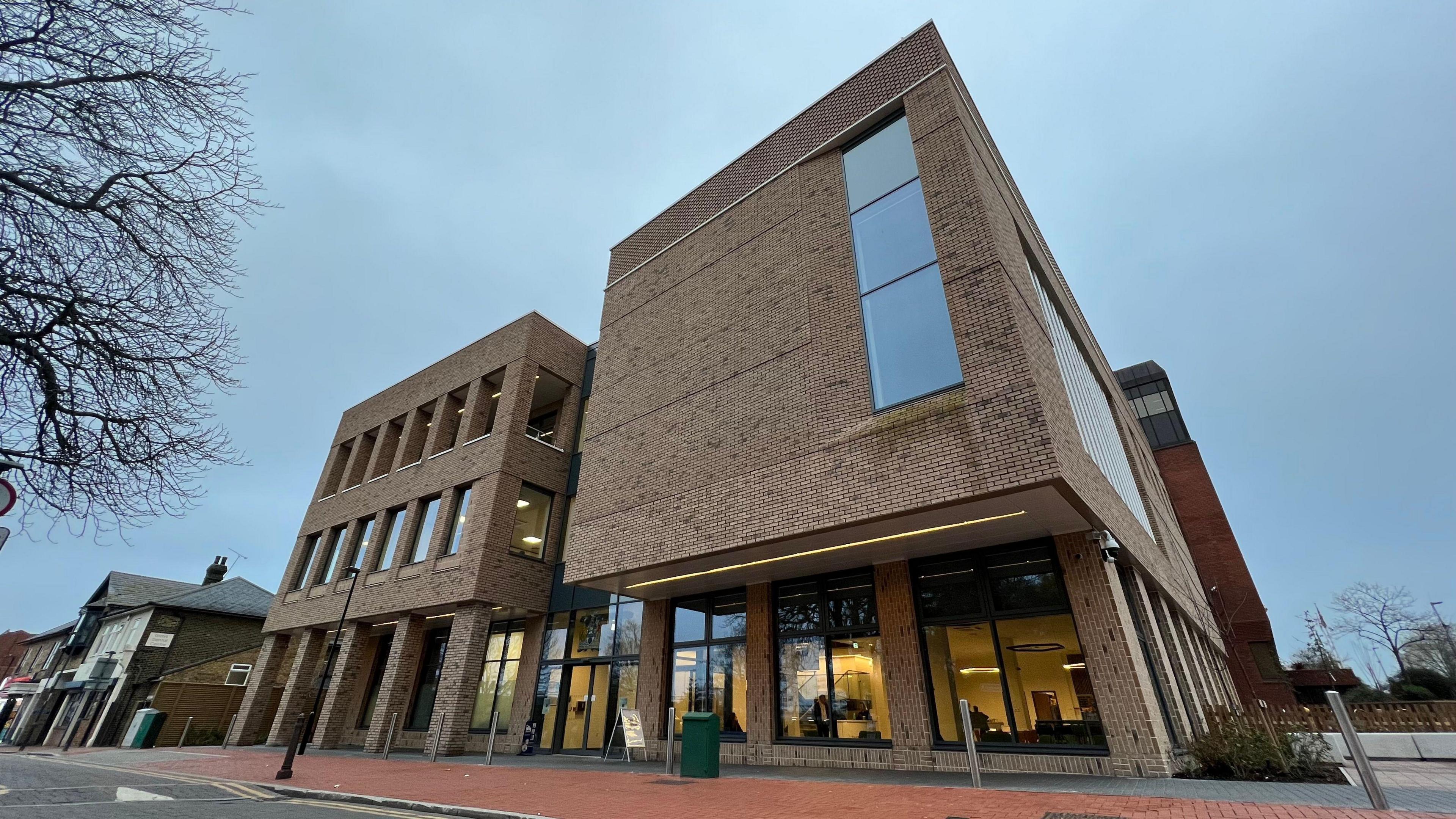'Which party will ensure councils do not go bust?'

- Published
Liz Johnston from Thurrock is among those who got in touch with the BBC via Your Voice, Your Vote to tell us about the most important issue for her in this election.
The retired teacher is most concerned about the financial situations facing local councils, several of which have been forced to effectively declare bankruptcy.
Her own authority, Thurrock Council, needed government intervention following a series of bad investments, which saw it raise council tax by 8% this year and 10% in 2023, to reduce its debt.
Ms Johnston wants to know what safeguarding measures the parties were planning to ensure councils spend taxpayers' money wisely and protect households from picking up the costs of bad debts.
Ms Johnston said she was prompted to write to the BBC after seeing its Panorama programme about the Thurrock Council financial scandal.
"What concerns me is there's lots of talk about more investment in social care and housing. The government will give this money to the councils but how do we know it will be spent on the right things?" she said.
"I'd like to know what government is going to do to support councils so that poor decisions don't see residents penalised and services cut drastically."

Liz Johnston says it is unfair taxpayers like herself have had to pick up the bill for poor financial decisions at Thurrock Council
So what do the parties have to say on the issue?
The Conservatives plan to ensure councils provide high quality and value for money services to local communities.
"As part of this, we will protect residents from excessive council tax rises by ensuring that local people have the final say on council tax; and we will ban the ‘four-day working week’ in local authorities.
"We will improve standards in councils by making their performance more transparent through the Office for Local Government."
The party adds it will "always stand behind councils".
Labour says local government has been facing "acute financial challenges and to provide greater stability, a Labour government will give councils multi-year funding settlements and end wasteful competitive bidding."
Its manifesto adds: "Labour will provide capacity and support to councils, and will overhaul the local audit system, so taxpayers get better value for money."
The Liberal Democrats acknowledge many local authorities are facing a "financial crisis" and, like Labour, plan to introduce multi-year settlements.
The party says it will "support local government through these difficult times, and review the burdens and costs that councils have shouldered".
The party's plans for social care provision, led by councils, includes "forging a long-term, cross-party agreement on social care", which could mean more scrutiny, given the involvement of all parties on any council.
The Greens believe all communities should make their own decisions.
"Elected Greens will ensure that local authorities across England are given the powers and resources they need," its manifesto says.
"They will push for an increase in local government funding of £5bn per year to tackle the current under-funding crisis and enable local authorities to play a key role in the transition to a zero-carbon economy and protecting nature."
No mention is made of scrutiny of spending decisions.
On to Reform, which does not mention its plans for council funding or local authorities in its manifesto.
Where do councils get their money from?
The way in which local government is funded has also changed over the past 13 years.
Councils used to get most of their money from central government, but now it is mainly from local sources.
This includes council tax, retained business rates and charges for services like parking, swimming pools and planning applications.
It has also involved more commercial investments, which is where some councils have got into difficulty.
Councils' spending power has also reduced with the Local Government Association saying councils' spending power has dropped 27% since 2010.
Authorities must provide some services, like social care, by law, so meeting the increased demand means cuts elsewhere.
Councils are also required by law to have a balanced budget each financial year and provide "best value" to residents.
But more and more councils are finding it harder to do so.

What really matters to you in this general election? What is the one issue that will influence your vote? Click the button below to submit your idea, and it could be featured on the BBC.